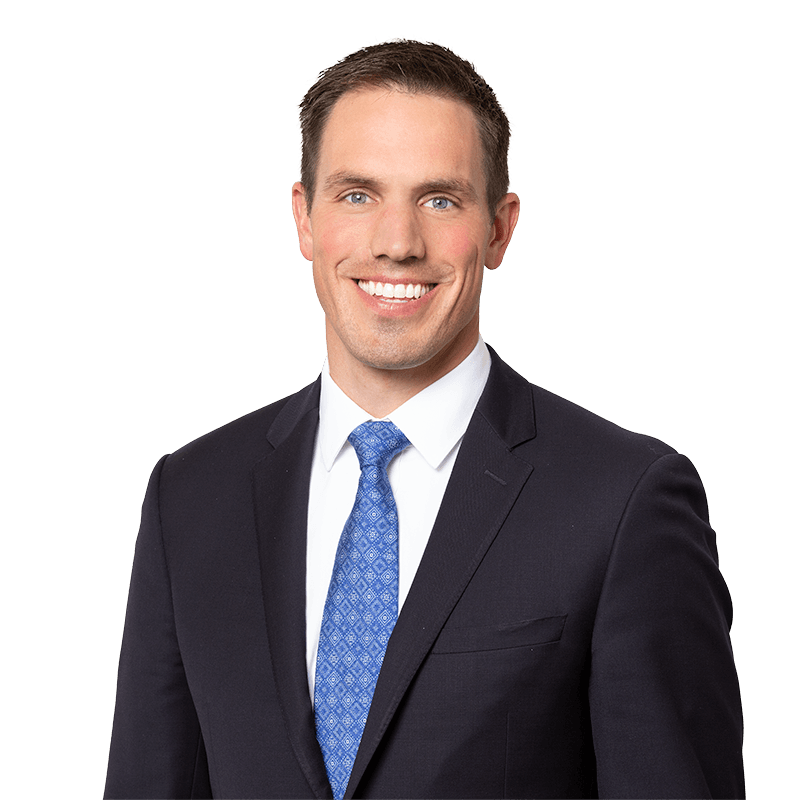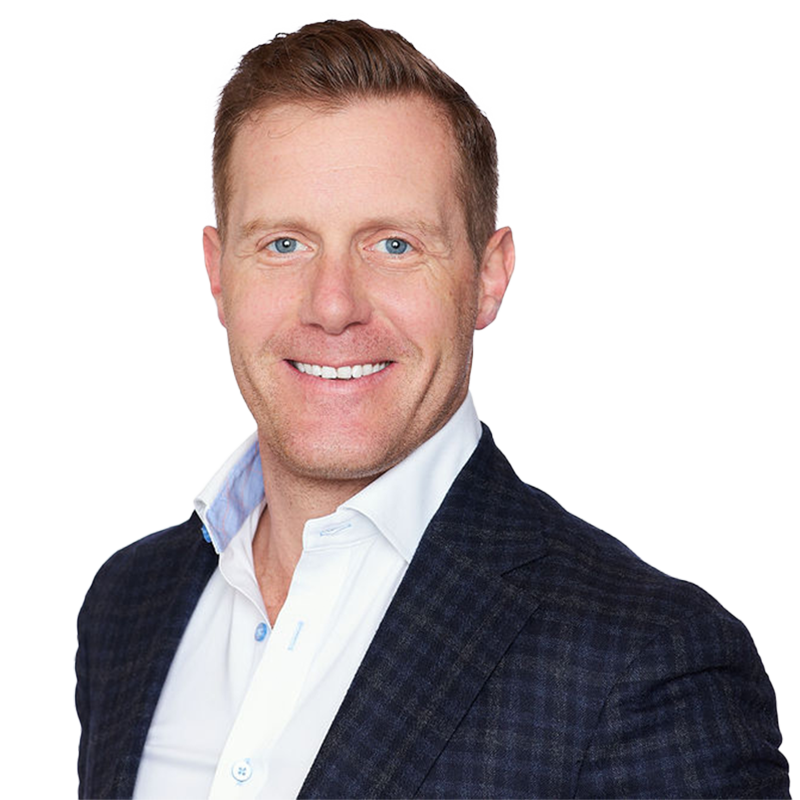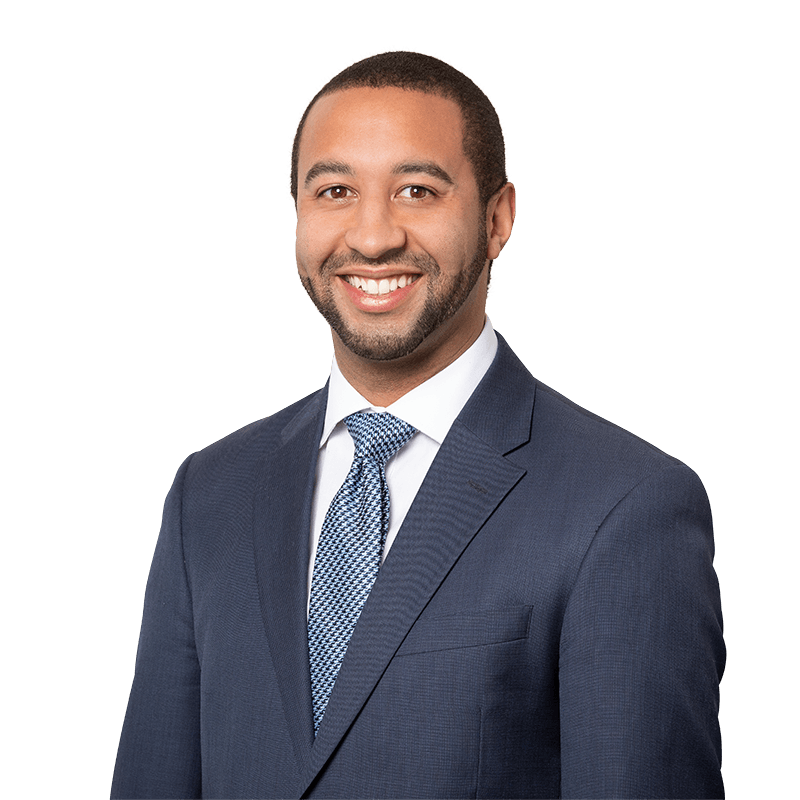
“Things turn out best for the people who make the best of the way things turn out.” – John Wooden

“Things turn out best for the people who make the best of the way things turn out.” – John Wooden
Hillsdale College Alumni
Has an MBA
All Pro Dad’s Father Son Breakfast, Member
Completed Boulder Ironman
Summited Mt. Kilamanjaro
Will video conference with clients to make it easier
Mark Nicolet’s decade long career at Trilogy Financial is driven by a deep commitment to helping individuals make impactful financials decisions one after another. With Mark’s attention to detail, diligence, and keen interest in behavioral finance, Mark wants his clients’ planning to match their priorities and vision of what they want. Mark assists clients in making informed decisions across various aspects of their financial lives, working towards achieving professional and personal financial independence.
Acknowledging the power of consistency, Mark challenges clients to integrate savings and investments plans into automated frameworks, recognizing both the role of emotions and math in thoughtful financial decision-making.
Mark earned his BA in Financial Management at Hillsdale College, his MBA* from Drake University, obtained his Certified Financial Planner (CFP®)* designation in 2017, and most recently, completed the Accredited Behavioral Finance Professional program, ABFPSM. He is a qualified Ramsey SmartVestor Pro** for investing and financial planning. He is also an Investment Advisor Representative with Trilogy Capital, Inc. in which he holds his Series 65 Registration. He also holds his Series 6, 63, and 7 through LPL Financial, as well as his Life and Health Insurance License.
Mark met his wife, Meg, while at Hillsdale College, and they have four sons: Drew, James, William, and Luke. Family time is important and this emphasis on family underscores his holistic approach to financial planning. At Hillsdale, Mark was an All-American quarterback and captain. He played several seasons in Europe and the arena league prior to being in a collegiate coaching role. Now, he coaches clients through their next best steps and appreciates their trust and motivation.
*For definitions of designations, click here.
**The SmartVestor program is a directory of investment professionals. Neither Dave Ramsey nor SmartVestor are affiliates of Trilogy or LPL.
Scroll through to see each of the Advisors





Trilogy Financial Services, a Huntington Beach, California-based hybrid managing $3 billion, has acquired E. F. Heagan & Associates of San Juan Capistrano, California, and Mandichak Investment Retirement & Estate Planning, of Laguna Niguel, California.
Terms of the acquisitions were not disclosed.
The two firms add $160 million in assets under management to Trilogy’s total and brings more than 500 new clients. Read More.
Trilogy Financial, formerly part of the National Planning Holdings network bought by LPL Financial in August, says it will affiliate with the independent broker-dealer. The Huntington Beach, California-based group has some 150 financial advisors and over $2 billion in client assets.
When is the “end” of this Coronavirus season? Do we return to “normal” at the end of the summer? I have no idea. However, I do know that when it happens, I will have already given intentional thought to my plan to return because there are some lessons learned and best practices to hold on to during this period of being at home with my family and work. Here are just a few I’d thought I share:
Be Present. Being more present has always been a pursuit of mine. And amidst a shelter-in environment, I’ve been more present without the back and forth to the office. When we are present, we thrive. When we are present, we are listening to our clients. When we are present, we are having more fun with our family. Compare it to being in the zone in athletics. We are solely focused on the conversation or task at hand, making us ultimately more effective as leaders and parents. Be present.
Be Proactive. Even though none of us anticipated the spread of this virus, there have still been plenty of opportunities to be proactive. Despite the uncertainty, a forward-thinking strategy creates freedom and reassurance. Having the flexibility to make anticipated adjustments and then course correct from there helps us weather the difficult days and be ahead over the long-term. This relates to our financial strategy and our day-to-day structure with kids at home. Have a plan, discuss it, and see it to completion. That might result in a strategy to invest in the market with dollar-cost averaging or decide to double recipes so you don’t have to cook as much. Either way, be proactive in life and at work.
Keep Up Good Habits. I have enjoyed the opportunity to connect over Zoom. I’m still improving my ability to read the emotion through the technology but with the effectiveness of virtual meetings, could I plan to only have Zoom meetings on Friday and stay at home? This would give me a few more hours to spend with my family. I don’t think my clients would disagree with that. Give it some thought. Have there been practices at home that should continue? Read for 20 minutes in the middle of the day? Exercise at lunch?
I’ve been grateful for this time and yet I know, this has created immense difficulty for most people. Through my numerous conversations with clients and friends, I’ve been encouraged by the attitude and fortitude these times require. Here’s to having a plan before we return to normal again.
“The most powerful weapon against stress is our ability to choose one thought over another. Train your mind to see the good in this day.” –Marc & Angel Chernoff
The opinions voiced in this material are for general information only and are not intended to provide specific advice or recommendations for any individual. To determine what is appropriate for you, consult a qualified professional.
In almost every journal entry I write, I include, “I am grateful for…” and list three to four items from my day that reminded me of how grateful I am. Just last night my wife of 10 years, laughed out at loud as she noticed, I had written, “Popcorn” as I enjoyed a bag in the last minutes of the evening after putting our young boys to bed. It is the little things that make life grand, right?
In light of the deep gratitude I experience on a daily basis, here are 8 financial planning action items I’m grateful for. I know my clients feel the same way because of the significant impact these ideas have over time:
I am grateful because these plans create structure and commitment.
I am grateful to help align risk, time frames, performance, and cost with the fund options available.
I am grateful because we are in a historically low tax environment and Uncle Sam has already been paid.
I am grateful to help eliminate inefficiencies and “leaking out the back door” with surplus cash flow.
I am grateful for financial reassurance.
I am grateful when I can provide clarity to planning so that my clients know what they are actually saving for.
I am grateful when a client calls asking about a refinance option, a car purchase, or stock options. Even though I don’t directly manage these decisions, they do have an impact on your financial plan.
I am grateful when clients can save and grow their money, yet still have access to their funds for that next down payment, big trip, or redoing the kitchen.
Yes, I am grateful for buttery popcorn, but more importantly, I am grateful for the motivation and trust of my clients and business partners.
The opinions voiced in this material are for general information only and are not intended to provide specific advice or recommendations for any individual. To determine what is appropriate for you, consult a qualified professional.
With a long weekend with my sons and my wife out of state for a reunion with friends, we found our way to Home Depot, the library, a car wash, and of course, a local pizza parlor. These small, but meaningful experiences for our boys’ weekend left me appreciating why a commitment to an automatic, monthly savings plan provides clarity and confidence within our day-to-day lives. We ventured out as my wife enjoyed the time with her friends, knowing we had already committed to saving a determined dollar amount, prior to the decisions of this weekend, this week, and this month. Some months naturally are more expensive than others, and outside of December, it’s hard to anticipate which month(s) will squeeze you. So, this confidence can be had when you have ALREADY settled on your 401k contribution, Roth IRA contribution, your non-retirement investment account contribution, your 529 plan contribution, your insurance contribution, and other vehicles you may be using to save for your priorities. There are a lot of options, but when accounts are being funded, the money isn’t available to spend, and you are taking advantage of dollar-cost averaging.
Once in place, what’s left to spend, is up to you. You will still need to manage the groceries, gas, and other (Target, of course), but I’m confident that you can live the life you want to live, spend intentionally, and still remain on course for future financial independence. More income creates more options, yet the behavior of savings is for everyone. If you have a structure, you can make incremental changes as income increases and priorities change. Eventually, you will have worked towards saving 15%, then 20%, and then 30%. It’s easier to retire when you are comfortable when living off of $.70 of every dollar. As a Decision Coach, I help families navigate how to best allocate their income on a monthly, quarterly, and annual basis through consistent and intentional communication. This provides an immense amount of clarity when your future priorities are already being saved for, especially when my boys want to grab ice cream on the way home, and I have no hesitation in saying, “Yes.” Please contact me at mark.nicolet@trilogyfs.com if you are interested in discussing your personal situation.
The opinions voiced in this material are for general information only and are not intended to provide specific advice or recommendations for any individual. Investing involves risk, including the risk of loss. Dollar cost averaging involves continuous investment in securities regardless of fluctuation in price levels of such securities. An investor should consider their ability to continue purchasing through fluctuating price levels. Such a plan does not assure a profit and does not protect against loss in declining markets.
“What’s top of mind?” is an incredible starting point for a financial planning conversation. A client will oftentimes start with a story, not the balance of their retirement account or what they spent last month on dining out. More recently, children have been top of mind for a lot of families. How should we pay for college? Should we pay for college? I want to save for my child, but have more flexibility than an education account. Education and the cost of college is the obvious priority with kids. I’ll suggest protecting your child with life insurance with accelerated benefit riders as a second priority. Let me explain, after you just tensed up and committed yourself to not discussing.
As a parent, I pray nothing happens to my two sons. Unfortunately, I don’t have complete control of that outcome. Here are three reasons why I’ll suggest life insurance for your child.
Accelerated benefit riders give you access to the death benefit, if your son or daughter experiences a terminal diagnosis, chronic disability, or a critical event. If any of these conditions take place, I’m not going back to work the next day. I’ll living at the hospital, eating restaurant food, and spending money on unanticipated expenses outside of what health care pays for, without having to take a loan on my 401k or deplete my savings account.
A death benefit (unimaginable) provides peace of mind that if the worst were to happen, your family wouldn’t have to think about work, the mortgage, or time off. You simply could spend time together grieving the most difficult time in your life. Enough said.
The cash value growing inside of your indexed universal life policy (form of permanent insurance) creates a saving vehicles indexed to the S&P 500 over the life of the policy. If at a certain point in your now grown child’s life, you can surrender the policy and provide a jump start for their first down payment, wedding, or other significant event in their life, OR even give the policy to your child for them to now pay their own premium and have a level of life insurance in place.
Why don’t I invest my money in the market and have more to give to my child when he/she is grown? I agree with this philosophy, assuming none of the aforementioned events happen while your children are under your roof. Since the cost of insurance for a child is so low, I’m willing to protect my child first, then if nothing happens, I have an opportunity to gift them their starter policy as they start their own career and family. If you have a term policy in place, you can oftentimes add a child term rider for a small additional premium. Cheers to being a parent. If you have further questions about this type of planning, please reach out to Mark Nicolet, CFP®, at mark.nicolet@trilogyfs.com or 303-300-3323 ext. 5227.
This material contains only general descriptions and is not a solicitation to sell any insurance product or security, nor is it intended as any financial or tax advice. For information about specific insurance needs or situations, contact your insurance agent. This doesn't take into account your personal characteristics such as budget, assets, risk tolerance, family situation or activities which may affect the type of insurance that would be right for you. In addition, state insurance laws and insurance underwriting rules may affect available coverage and its costs. Guarantees are based on the claims paying ability of the issuing company.
We believe that real Life Planning is progress, not perfection.
Financial Life Planning is about actually starting — taking a few good steps in the right direction and then taking a few more.
Financial Life Planning is fundamentally about taking a few good steps in the right direction and then taking a few more. Trilogy Financial has established regional offices from coast to coast with the clear vision of helping millions of Americans pursue financial independence, every day.
Some advisors associated with this material are registered representatives of LPL Financial (LPL) and are Investment Advisor Representatives (IAR’s) for Trilogy Capital Inc. (TC). Some IAR’s of TC are not registered or affiliated with LPL. Securities offered through LPL. Member FINRA/SIPC. Investment advisory services offered through TC, A Registered Investment Advisor. TC markets advisory services under the name of Trilogy Financial (“TF”), an affiliated but separate legal entity. TC and TF are separate entities from LPL. The LPL Registered Representatives associated with this site may only discuss and/or transact securities business with residents of the United States.